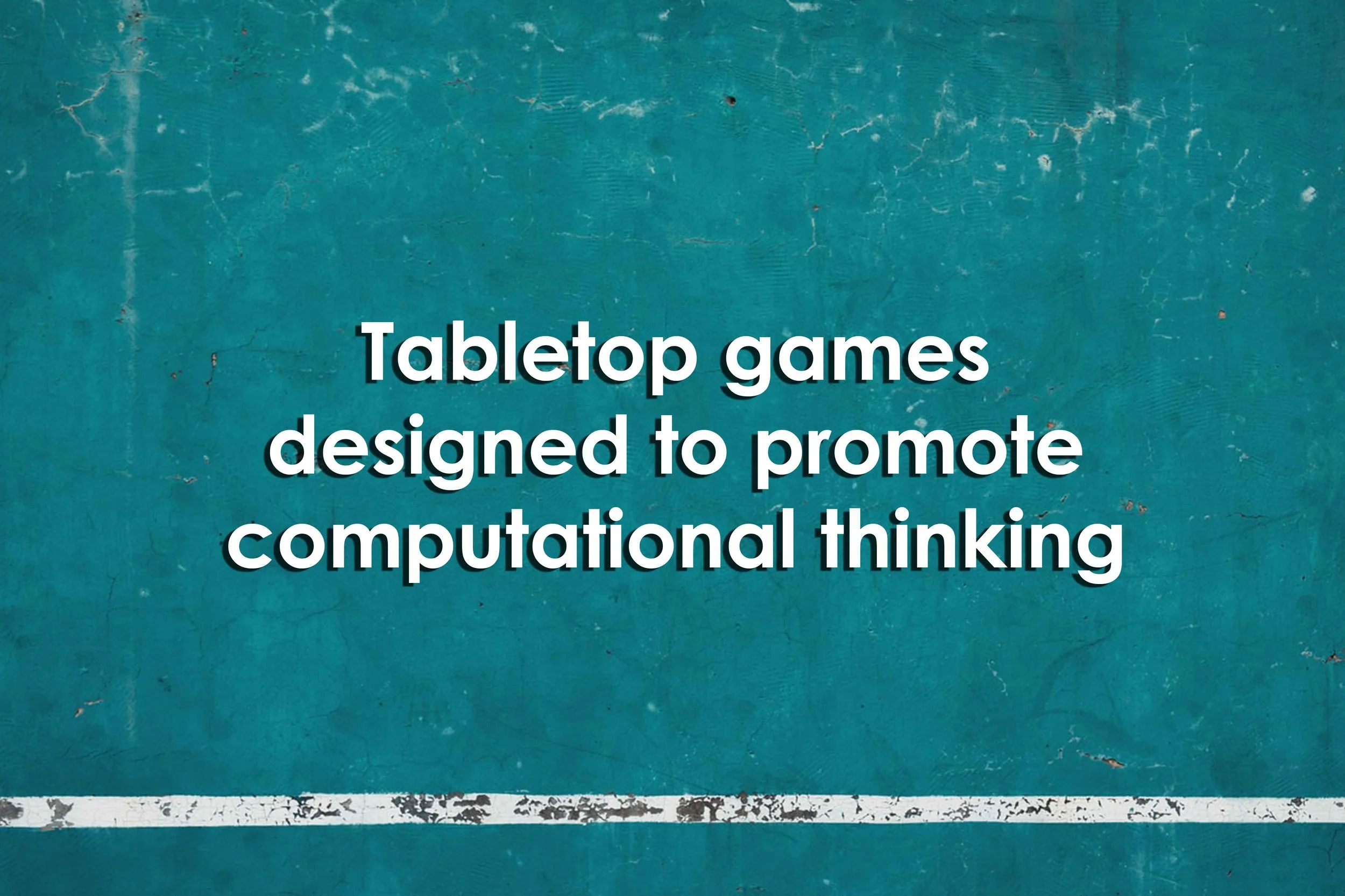Tabletop games designed to promote computational thinking
Tabletop games designed to promote computational thinking
Tabletop games designed to promote computational thinking
By Frederick J. Poole, Jody Clarke-Midura, Melissa Rasmussen, Umar Shehzad and
Victor R. Lee
Abstract
“There is a growing perception that computational thinking can be developed in unplugged environments. A recent trend among these unplugged approaches is the use of tabletop games. While there are many commercial tabletop games on the market that are promoted as teaching computer science and/or computational skills, little is known about how these games are supposed to support learning. This study investigates the types of tabletop games that are currently being promoted as teaching computational thinking, who such games are marketed towards, and how game designs could provide opportunities for developing computational thinking. We conducted a content analysis to explore the type of tabletop games currently being created, their audiences, and the kinds of game mechanics and design features being implemented to teach computational thinking concepts. In this study, we created a taxonomy of computational thinking tabletop games that identified three primary categories (e.g. code building, code execution, and puzzle games) . Games that fall into our categories share similar learning claims, target audiences, and game mechanics. Our taxonomy offers a starting place for educators who want to explore the use of tabletop games for introducing computational thinking concepts in unplugged settings, suggestions for designers, and areas of investigation for researchers.”
Reference
Poole, F. J., Midura, J. C., Rasmussen, M., Shehzad, U., & Lee, V. R. (2021, July 1). Tabletop games designed to promote computational thinking. Retrieved November 11, 2021, from https://www.tandfonline.com/doi/abs/10.1080/08993408.2021.1947642
Keyword
Tabletop games, computational thinking, content analysis, research

